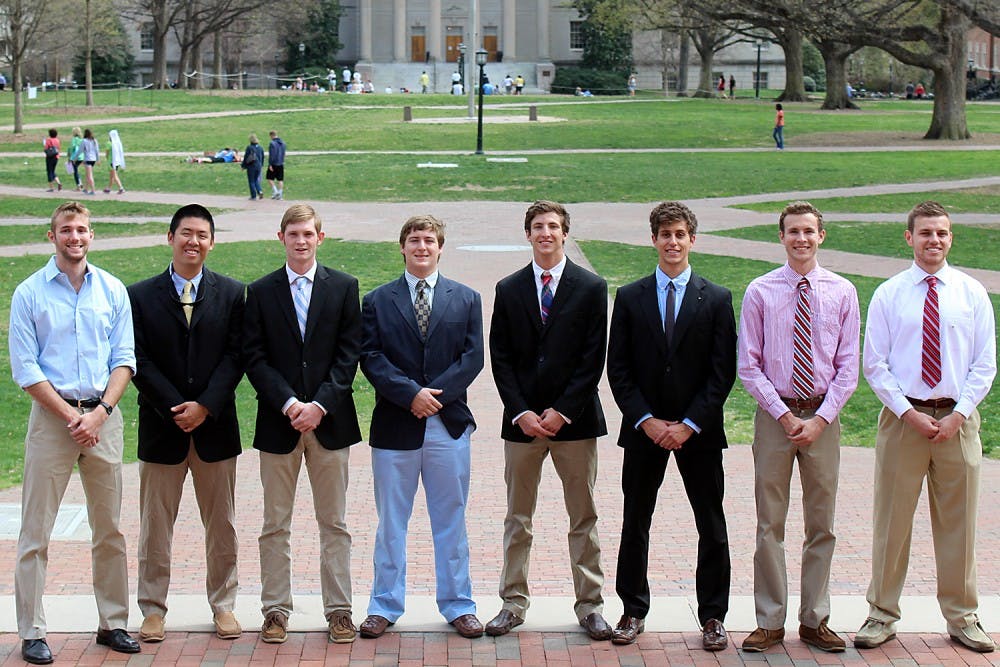Their solution? Create a new fraternity.
“At first we had a network of friends and friends of friends. Initially we didn’t have to market very much because we knew these people really well. Now it’s just been a process of expanding that network to friends of friends of friends,” Cobb said.
In November, the duo met with Aaron Bachenheimer, director of the Office of Fraternity and Sorority Life and Community Involvement, to express their interest in adding another social fraternity on campus to the 23 existing chapters.
Bachenheimer said it’s rare that students try to pitch a new fraternity or sorority with such a well-executed plan.
“The way I see it, the survival of fraternities on campus is a lot like capitalism. We let them start and then see how far they get. Some of them go on to be great and others flop,” Bachenheimer said.
DeHaven and Cobb had perfect timing to express their interests, because the national Alpha Sigma Phi fraternity had also recently contacted Bachenheimer about starting a chapter at UNC. Within a month of the initial meeting, DeHaven was on a flight to Indiana to participate in a national conference for the fraternity.
With the help of Alpha Sigma Phi’s National Expansion Coordinators Robbie Layman and Connor Gau, the fraternity is now an official colony at UNC, and is a recognized member of the Interfraternity Council. The colony currently has 68 members and will participate in fall rush.
“It’s been like running a small business, you have to worry about what all these individuals in your group want, what you as leadership want and how to bring those two things together,” Cobb said. “It’s taught me how to let go a little. As the group grows you have to trust people that you bring in, because no single person can be in charge.”



